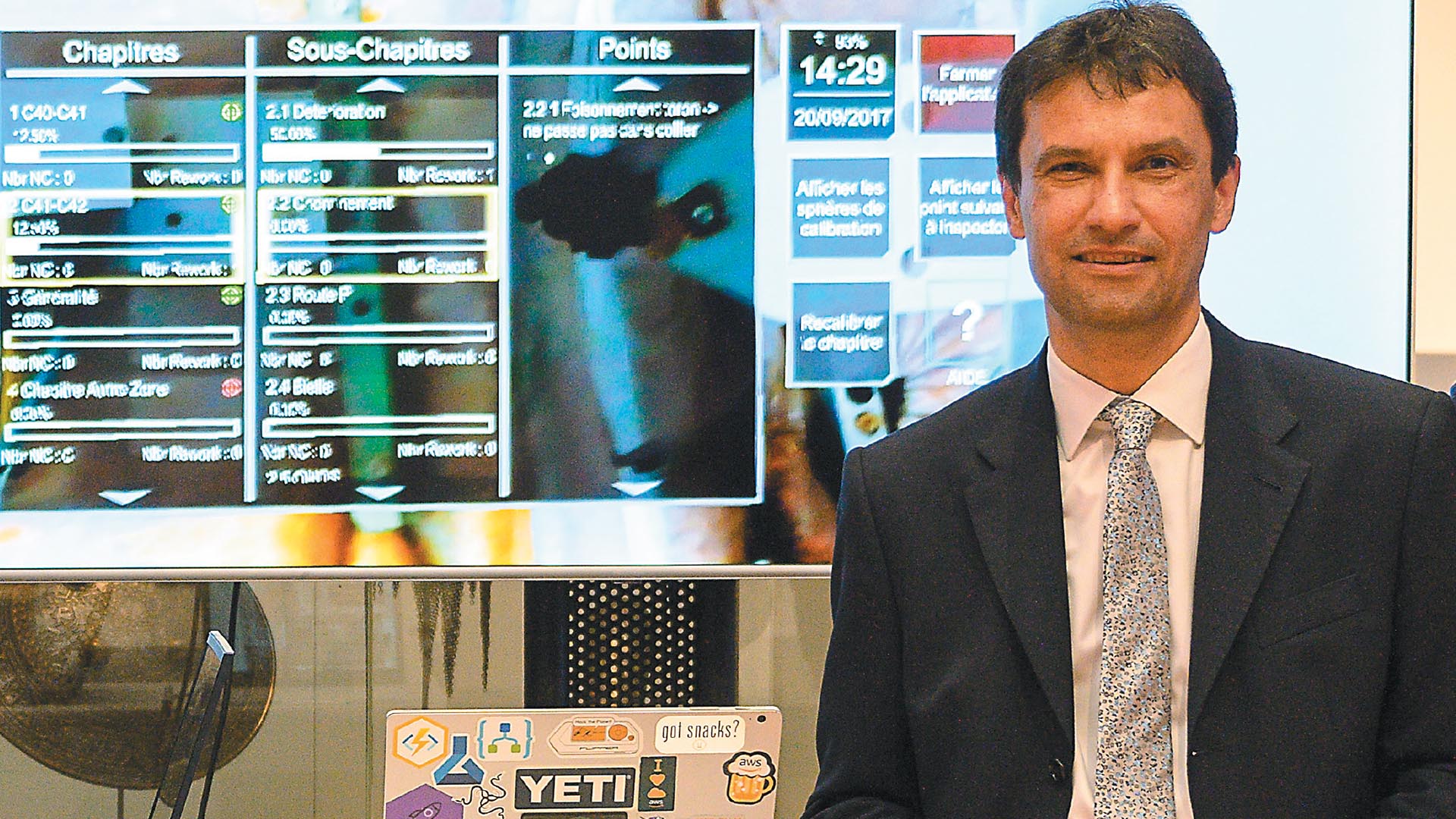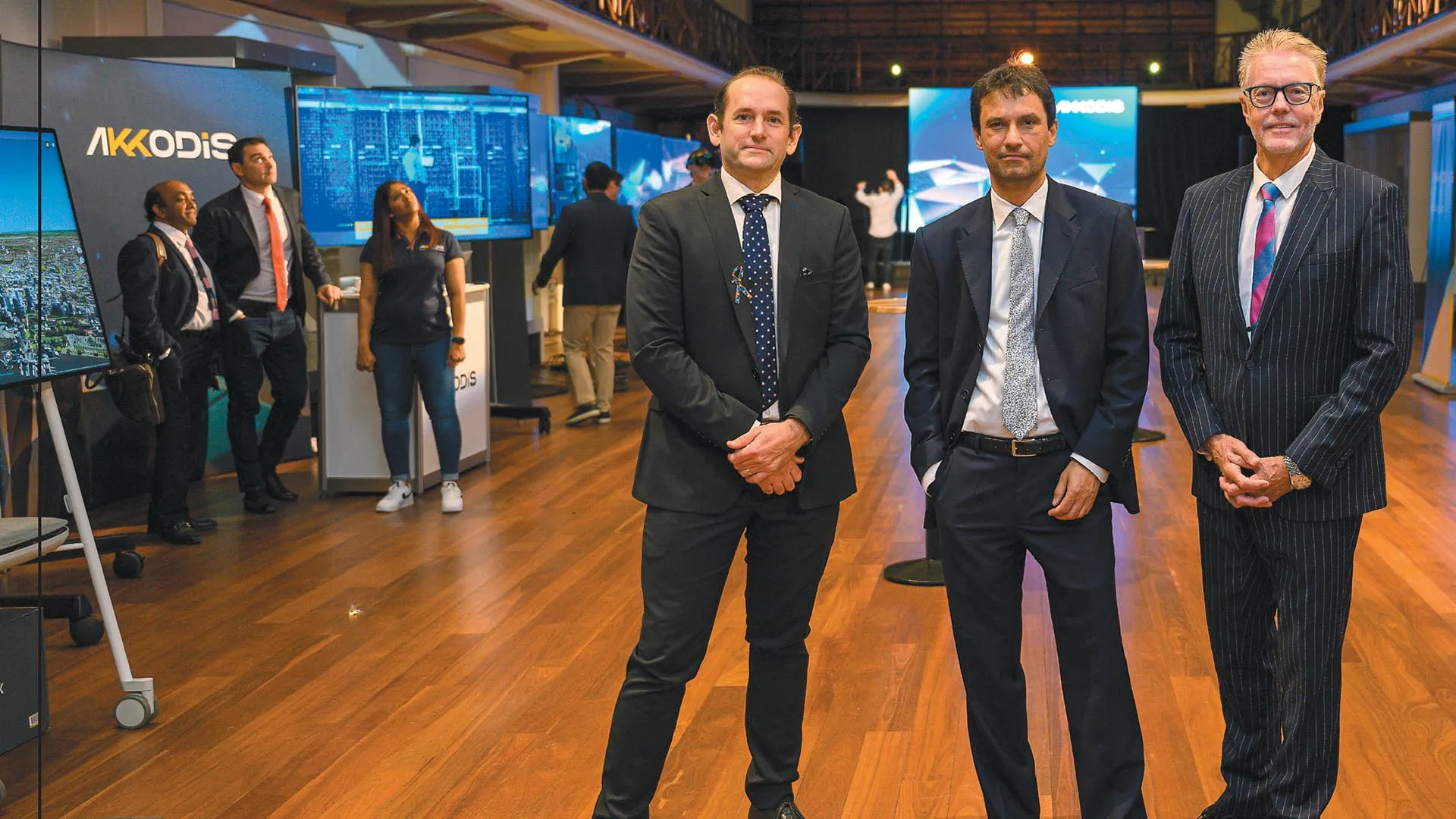Akkodis targets tech training
Coverage from Business News: With a background in mechanical engineering, Akkodis global president Jan Gupta brings a different perspective to the tech sector.
5 minutes
25th of May, 2023

This article originally appeared in the Business News. A full reprint is available for download.
Four years ago, Switzerland-based Adecco Group appointed Jan Gupta as president of its IT solutions business, Modis.
Surveying the market, he saw an opportunity to bring together two different skill sets.
“In the world of tech, there is a big evolution going on,” Dr Gupta said.
“You have pure engineering on one side, and on the other, IT is growing in a connected world.
“As Modis was more of an IT digital company, we decided to acquire one of the biggest engineering consulting companies [in Europe], Akka Technologies.”
The two businesses have been brought together under a new brand, Akkodis, which boasts 50,000 people across 30 countries, including 1,200 in Australia.
Dr Gupta was in Perth last month for the local launch of the brand and to pursue new opportunities for the business. With nearly 400 staff in Western Australia, Akkodis is already ranked as the state’s third largest ICT company, according to Data & Insights.
The business traces its origins to consulting firm AeM Group, which launched in Perth in 1998. AeM was acquired by Ajilon Group in 2006. Ajilon subsequently merged with Icon Recruitment and the combined business was rebranded as Modis in 2018.
The acquisition of Akka Technologies has led to the latest rebranding.
That series of deals provides another pointer to how Akkodis seeks to differentiate itself. Senior vice-president Peter Hawkins said technology consulting was just one part of the business.

“Then we have our talent business, which is recruiting the best people, either from outside Australia or within Australia, for our customers and ourselves,” he said.
The third leg is its training academies, which it hopes to bring to Perth.
Mr Hawkins said the focus was on ensuring people secured employment after they completed their training. “Industry does not want to hire people with no experience, that first job is really hard,” he said.
“We talk to our customers, and we wrap around those people for the first year and provide them with upskilling and a mentor [to] take that burden off the employer.
It’s another unique proposition we have. We spoke to the deputy premier [Roger Cook] today about setting up a very similar program.”
Dr Gupta said Perth was the preferred location for the group’s next training academy. “We have ten academies worldwide and we are currently looking for number eleven,” he said. “We will do it in Australia anyway and our ambition is to start in WA.”
Perth-based vice-president Warren Harding said the meeting with Mr Cook made it clear there was a joint ambition to find a way to bring an academy to WA, working in tandem with industry and with the TAFE sector.
Mr Hawkins said the skills shortage in tech was a global challenge. “Probably the biggest conversation we have, globally and in Australia, is the skills shortage, the talent shortage, for our industry,” he said, adding that the mass layoffs this year by many of the world’s biggest tech companies had not been a great help.
“You would think intuitively that finding talent would be easier, but people are less keen to leave a job for a new one,” Mr Hawkins told Business News. “People are really reluctant to leave a secure job. We have seen in the first quarter even more tightening.”
Mr Hawkins said demand in the market was for coders and other ‘doers’, but many people who had been laid off were the ‘sellers’ from marketing and business development roles.
Competition
Akkodis has entered a market with a wide range of competitors, reflecting the convergence of IT, consulting and communications. The largest ICT firm in WA is privately owned Perth company Kinetic IT, which has about 650 tech professionals.
It is followed by French company Capgemini, which has about 450 professional staff.
Capgemini substantially bolstered its presence in the local market two years ago when it bought Perth-based ASX company Empired. Another recent takeover target was local firm Velrada. It was acquired last year by ASG Group, which in turn is owned by Japan’s NRI (formerly Nomura Research Institute).
The big four accounting firms are major competitors, with Deloitte having the largest consulting practice in WA. Another big player in the local market is DXC Technology.
The US-based firm is a global giant, with 130,000 employees across 70 countries.
Other big firms in the sector with a very different history include telcos Telstra and Vocus and computing giant IBM.
Mr Hawkins said about 60 per cent of Akkodis’s work in the local market had been with public sector agencies, predominantly in application managed services and digital transformation.
Major clients have included WA Police and the departments of justice, communities and health. The balance of its work has been with the big resources companies.
Its work in WA has included a major initiative at state government agency Landgate.
“We modernised their land registry and built the first cloud-based land registry anywhere in the world, which allowed the WA government to privatise the registry for $1.4 billion,” Mr Hawkins said.
“We will run that land registry for the next 31 years.” In addition, Akkodis still supplies services to Landgate.
Mr Hawkins said the merger with Akka had brought a range of new opportunities.
One example was the use of digital twins, an increasingly popular tool for depicting and monitoring complex industrial assets online.
“Before Akka, Modis in Australia was amazing at analytics and the cloud,” Mr Hawkins said. “We can take all the data from systems and put it in the cloud and do some incredible analytics over the top, but we never had any devices or access to the devices.
“The digital twin … device is something we built in Europe. You can plug it into the network, and then do all the data and analytics, visualise the whole plant, visualise the supply chain. That is something we could never do before, to offer the entire end-to-end solution.”
Dr Gupta said a lot of work the merged group was doing in Europe was highly relevant to the Australian market. In Germany, Akkodis is working for Automotive Cells Co, an industry consortium building large-scale battery factories.
Akkodis is designing a ‘gigafactory’ in Germany that will be able to produce 500,000 batteries per year, enough for 50 per cent of Australia’s EV vehicles. Dr Gupta said this expertise would help Akkodis in its collaboration with the Perth-based Future Battery Industries Cooperative Research Centre.
It also has a green hydrogen centre of expertise, covering everything from production and storage to distribution and applications. Other industries in which it works internationally include life sciences and healthcare, aerospace and defence.
Dr Gupta acknowledged Akkodis was not the complete expert in all these areas but provided the opportunity to transfer skills and knowledge across industry sectors.
“That is why we made this merger, to create the synergies all around the globe,” Dr Gupta told Business News.
“We try to bring technology from industry A to industry B. Everything we have learned in AI and data analytics in the nuclear industry we can bring that to defence and the life sciences.”
Mr Hawkins said he saw opportunities to export some of the work being done by Akkodis teams in Perth and elsewhere in Australia. “We’re super excited about what we can bring from Europe and North America but we’re not going to stop the work we are doing in Australia,” he said.
“We have some truly world-class solutions that are getting international attention.”
The most notable examples are in policing, health and community services.
Akkodis worked with the WA Police to develop Söze, a digital platform tool that helps authorities trawl through huge volumes of online data, such as phone calls, emails and digital pictures.
Söze, enables police to identify the digital footprint of criminals significantly faster than undertaking the same task manually. Mr Hawkins said it was currently being trialled in the UK and the United Arab Emirates and was seen as a potentially valuable tool for tackling child exploitation.
Another success story is the SILVA hub, also built in partnership with the WA Police.
This operations platform provides greater visibility and accessibility to critical information, such as drone footage and helicopter footage during pursuits.
Mr Hawkins said this had also attracted interest from authorities in the US.
Akkodis also developed the Yarning smartphone app, a first-of-its-kind Aboriginal language interpreter app to help break down communication barriers.
The app has won a global Microsoft award for change and social inclusion and been augmented so it can be used by a wider range of people, such as first responders in healthcare.
Another initiative used in the community is a domestic violence triage prioritisation app, which collates data from WA Police and the Department of Communities to help prioritise management of DV cases.
Innovations in the healthcare sector include Medivitals, a wearable device to support patient monitoring and decision making, and a register of medical devices.
Mr Harding said Akkodis was focused on using digital health and telehealth to achieve more equity in access to health services, especially for Aboriginal people and those in remote communities.